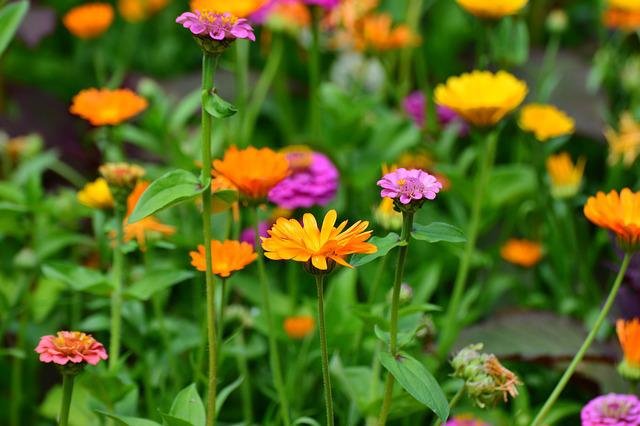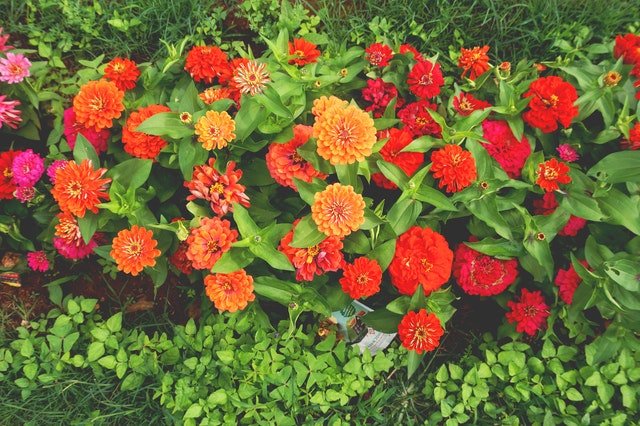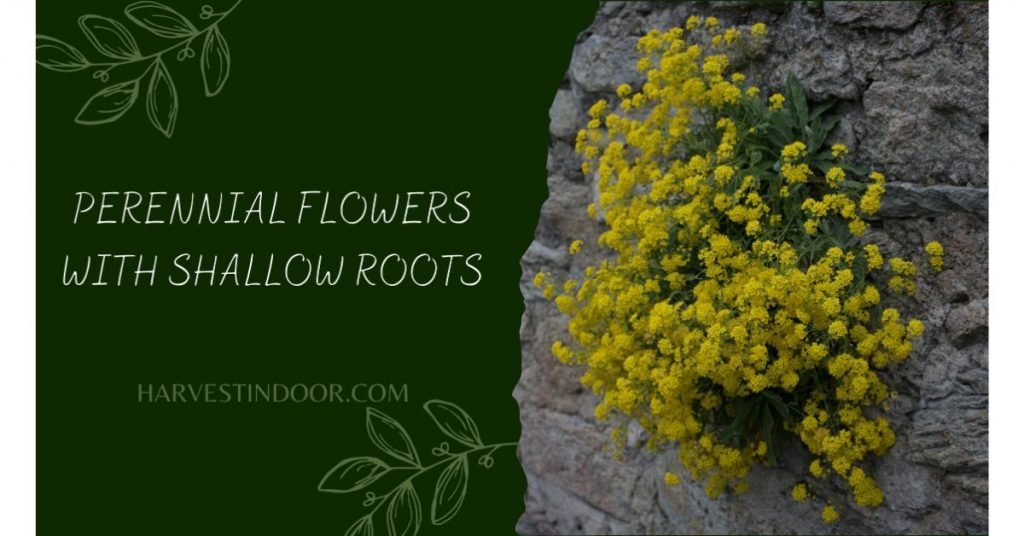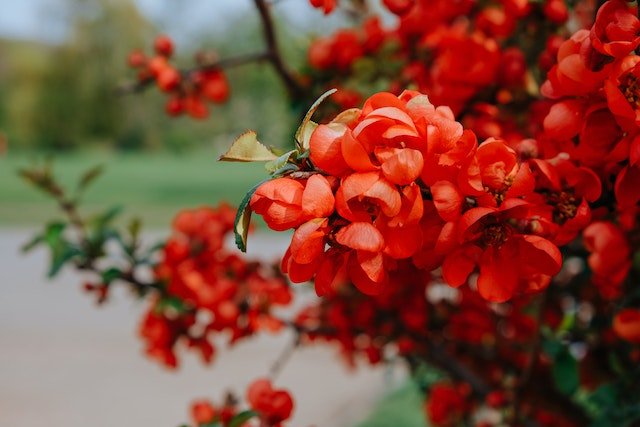Garden Tone and Tomato Tone are both types of well-known and trusted organic fertilizers. Although both plant foods provide additional nutritious content, it can be tricky to pick which one to spend the money with.
But worry not! In this section, we’ll be the guide to help gardeners pick which Garden Tone vs Tomato Tone is best suitable for their green companions. So without further ado, let’s do the comparison!

Table of Contents
Garden Tone vs Tomato Tone: What Makes These Fertilizers Different?
As the name states, Garden Tone and Tomato Tone are organic fertilizers designed to cater to specific plant needs. These two, however, are manufactured by the same company, Espoma Garden, which also produces the other type of plant food, called Plant Tone organic fertilizer.
Now, let’s move into the comparison between Garden Tone vs Tomato Tone.
Garden Tone
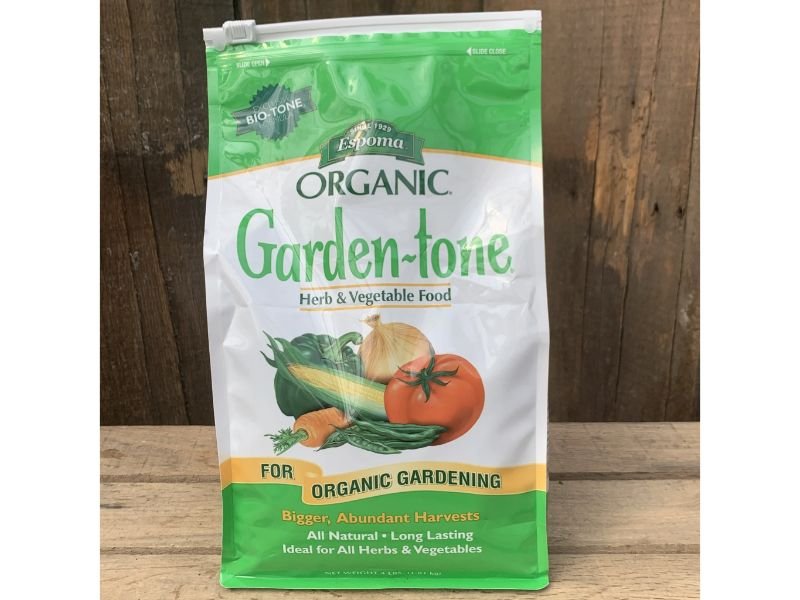
Garden Tone is a versatile fertilizer suitable for a wide range of plants, including flowers, herbs, shrubs, vegetables, and even trees. Its advantage lies in its broad application, making it a go-to choice for plant lovers with diverse plant varieties. The cons are, Garden Tone may not provide the specialized nutrients required by specific plants.
Tomato Tone
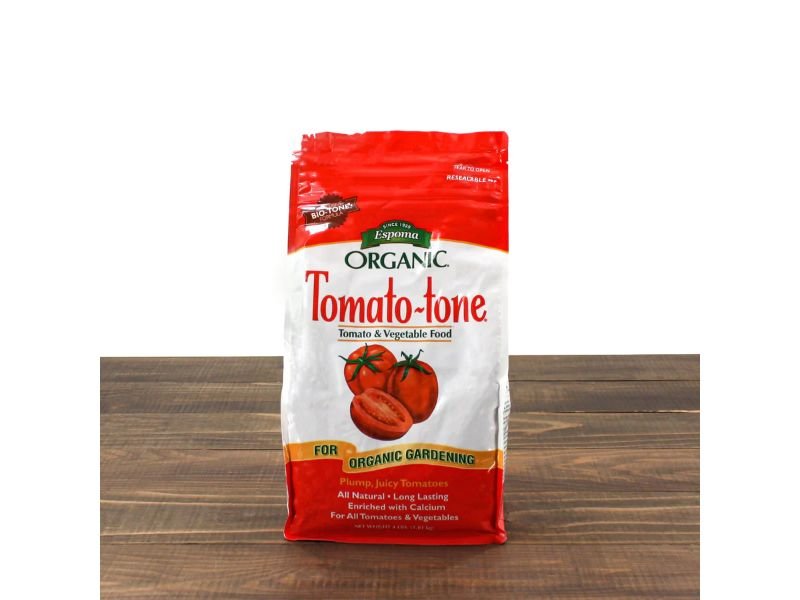
On the other side, Tomato Tone is specifically formulated for tomato plants and other fruiting vegetables such as peppers, cucumbers, and eggplants. It contains a higher concentration of potassium, which promotes fruit development and enhances flavor. Tomato Tone’s strength lies in its targeted formulation, ensuring optimal growth for these targeted plants. Nonetheless, its limitation is its narrower scope of application, making it less suitable for other plant types.
In terms of price, overall, Garden Tone is generally lower compared to Tomato Tone since it’s a more general-purpose fertilizer. This affordability makes Garden Tone an attractive option for budget-conscious gardeners.
Comparing the NPK Ratio of Garden Tone vs Tomato Tone
The NPK ratio, which represents the nutrient content of a fertilizer, plays a crucial role in plant nutrition. When comparing the NPK ratio of Garden Tone and Tomato Tone, there are, certainly, notable differences.
Garden Tone typically has a balanced NPK ratio, such as 3-4-4 or 4-3-4, which signifies moderate levels of nitrogen, phosphorus, and potassium. This balanced ratio is also perfect for promoting various plant growth.
Meanwhile, Tomato Tone is slightly different from its cousin. The specialized ratio for Tomato Tone is 3-4-6 or 3-4-7, with a higher concentration of potassium. This elevated level of potassium can be very beneficial for fruiting plants like tomatoes. Aside from the main NPK, both Garden Tone and Tomato Tone are also packed with various micronutrients, such as calcium, magnesium, sulfur, copper, and boron.
Can You Use Garden Tone for Tomato Plants?

After getting informed about the different NPK ratios and the specific targeting plants of Garden Tone vs Tomato Tone, you might wonder, can you use Garden Tone for tomatoes instead?
The answer is yes, you can use Garden Tone to plant your tomatoes. Although Garden Tone is a general-purpose organic fertilizer, it can still provide the necessary nutrients for tomato plants’ development.
However, although it may result in adequate nutrition, it could potentially yield slightly different fruit production compared to when Tomato Tone is used. So if your goal is to cultivate the best tomato plants, we recommend sticking to Tomato Tone only.
Which One is More Suitable for Organic Garden and Organic Tomato Cultivation?
Organic gardening refers to an approach that emphasizes the use of natural and sustainable methods, excluding synthetic chemicals and genetically modified organisms.
Organic tomato cultivation follows the same principles, ensuring tomatoes’ growth and care without synthetic pesticides and fertilizers. In this context, both Garden Tone vs Tomato Tone aligns with the principles of organic gardening and tomato cultivation.
This is because both plant foods are derived from natural resources and do not contain synthetic chemicals. Synthetic chemicals in fertilizer refer to artificially produced substances that are not naturally occurring in the environment. These chemicals are typically created through industrial processes that can harm the environment, human health, and the plant itself.
Does Garden Tone and Tomato Tone Affect the Taste of Homegrown Tomatoes and Vegetables?
Once again, Garden Tone vs Tomato Tone is both the winners in this battle. Both plant foods can have an impact on the taste of homegrown tomatoes and vegetables, by enhancing the flavor of the harvested produce.
Garden Tone, with its balanced blend of nutrients, contributes to the overall health and vigor of plants, which can positively influence the flavor. Tomato Tone, on the other side, contains higher levels of potassium, which is known as the nutrient that helps enhance the sweetness of fruits.
Regarding their usage, both Garden Tone and Tomato Tone can be used for various gardening methods, including drip irrigation and container gardening. These fertilizers can be incorporated into the soil before planting or applied as a top dressing during the growing season. When used in drip irrigation systems, Garden Tone can be dissolved in water and applied directly to the plant’s root.
However, since Tomato Tone contains a fair amount of organic ingredients that are not water-soluble, it’s best to avoid this fertilizer in drip irrigation. Gardeners can also use Garden Tone and Tomato Tone for container gardening, by mixing it into the potting soil or applied as a liquid solution to provide essential nutrients for the potted plants.
Is Tomato Tone Good for Cucumbers?
When deciding between Garden Tone vs Tomato Tone, it’s important to consider the specific nutrient requirements for each plant. The good news is Tomato Tone, with its specialized formulation tailored for fruiting vegetables, can also provide some benefits to cucumber. Both tomatoes and cucumbers belong to the same family of Solanaceae, and they have somewhat similar nutrient requirements.
However, it’s worth noting that while Tomato Tone can be beneficial for cucumbers, it may not address all the specific needs of cucumber plants.
Learn It the Right Way: How To Use Garden Tone and Tomato Tone?
To make the most of Garden Tone and Tomato Tone, it’s important to understand how to use them effectively. Luckily, both fertilizers can be applied similarly.
Firstly, determine the recommended application rate based on the size of your garden or the number of plants you wish to fertilize. Read the specific instructions that can be found on the product packaging or obtained from the manufacturer’s guidelines. It’s crucial to follow the recommended dosage to avoid over-fertilization, which can be detrimental to plant health.
Next, choose an appropriate time to apply the fertilizer. Generally, it’s recommended to apply Garden Tone and Tomato Tone at the beginning of the growing season and periodically throughout the plant’s life cycle. For example, you can apply the fertilizer when preparing the soil before planting, and then repeat the application every 4-6 weeks during the growing season.
When applying the fertilizer, ensure even distribution around the base of the plants. You can lightly work the fertilizer into the soil or gently scratch it into the surface to promote incorporation. Water the plants thoroughly after application to facilitate nutrient absorption and prevent fertilizer burn.
Final Verdict of Garden Tone vs Tomato Tone: Which One’s Worth Buying?
In conclusion, both Garden Tone and Tomato Tone have their merits and are worth considering for gardeners. If you have a diverse garden with various plant types, Garden Tone offers a well-rounded option. However, if you prioritize growing tomatoes and other fruiting vegetables, Tomato Tone can provide targeted benefits for optimal tomato production and taste.

New author in the hood. Loves gardening and flowers are my spirit animals (yes I know they are not animals but I insist). I will be covering most of the flowers’ topics here and occasionally random though as well.


